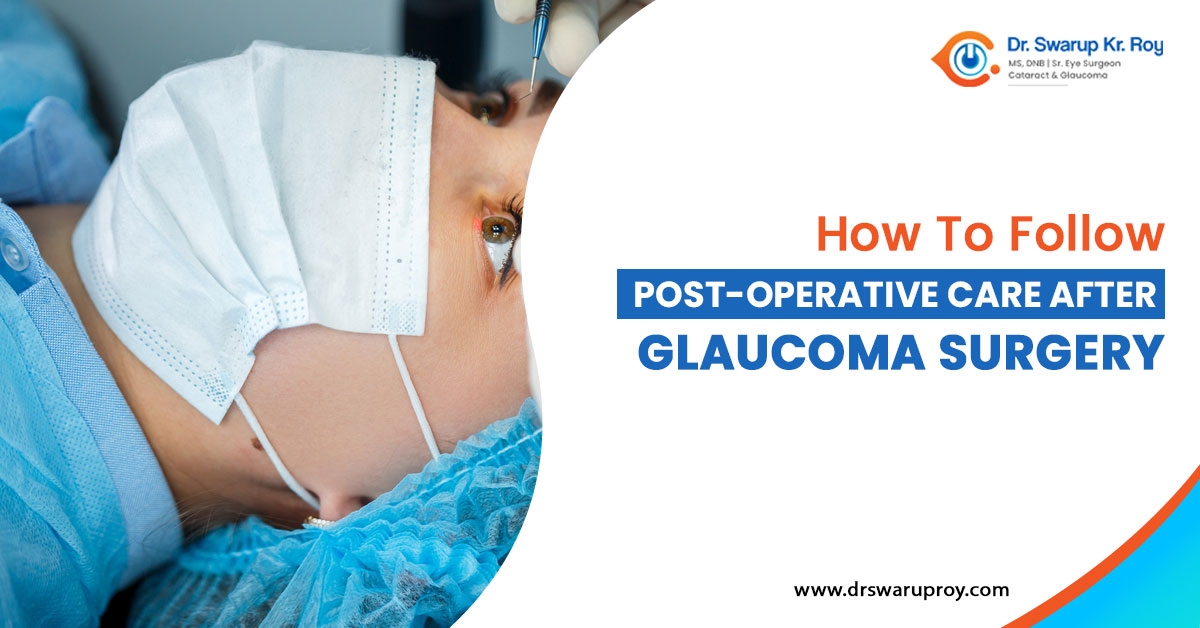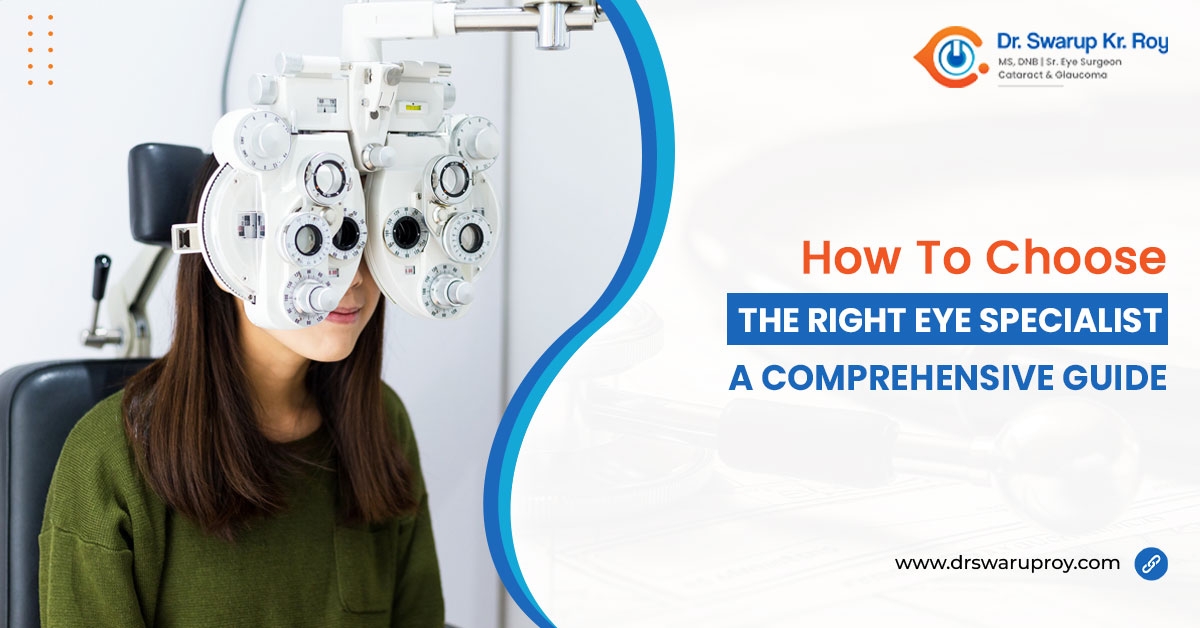Vision loss can happen due to various reasons such as migraine, eye strain, conjunctivitis, glaucoma, age-related macular degeneration, and diabetic retinopathy. In most cases, vision loss doesn’t happen suddenly which is considered gradual vision loss. If you’re experiencing any vision changes then without any further delay you must contact Dr. Swarup Kr. Roy, a renowned eye specialist in Siliguri to undergo a detailed eye examination.
Even if you’re not suffering from any symptoms then also it is essential for everyone to schedule routine check-ups. You must know that vision loss is preventable only if the underlying conditions are detected at an early stage. In the eye examination, the doctor will assess your eye functioning and look for any changes to diagnose and treat the complications effectively. Herein, the doctor can also recommend effective coping strategies to reduce the chances of visual impairment.
How Often You Should Consider A Regular Eye Check-Up
Most doctors recommend undergoing routine check-ups at least once a year. This frequency is only applicable to adults and kids who don’t have any eye complications. Herein, the doctor may advise you to indulge in frequent eye exams if you’re suffering from various eye conditions. If you’re using contact lenses or glasses due to refractive errors then it is recommended to visit the doctor quarterly to check for any changes in eye power.
Sudden eye pain, blurry vision, history of eye surgery, and family genetics of serious eye issues are some of the conditions indicating more frequent check-ups. Additionally, the doctor may also keep a continuous track of your eye functioning through recurrent examinations if you have advanced age and suffering from hypertension or diabetes. This is because people suffering from these conditions are more prone to develop eye disorders.
Eye Tests You Can Expect During The Routine Check-Up
During routine eye check-ups, the doctor usually recommends various eye examinations to assess any abnormalities and check the normal functioning of the eyes. The entire examination may range from half an hour to several hours based on your specific needs. Starting from your retina and ocular pressure to eye power, everything is evaluated by the doctor during the check-ups. Given below are some of the tests that you can expect during a routine check-up performed by the best eye doctor in Siliguri-
- Refraction Test- A refraction or vision test is done to check whether you have a 20/20 vision or not. If the doctor sees that you don’t have a perfect vision then it is considered a refractive error. After completing this test, the doctor may prescribe you a specific amount of power you need in the lenses or glasses.
- Visual Acuity Test- Another essential test conducted during the check-up is the visual acuity test. The main aim of this test is to evaluate your vision and eyesight for both far and near-sightedness. The doctor may also advise you to wear glasses or lenses if any abnormalities are detected during this test.
- Slit Lamp Exam- One of the most effective and detailed eye examinations conducted by the eye specialist is the slit lamp exam. During this test, the doctor will instruct you to rest your face near a microscope. After this, your eye structure is assessed with high magnification. A set of lenses is used during this test to check the structure of your optic nerve and retina.
- Visual Field Test- A visual field test can effectively detect the presence of any blind spots in the eyes. The main role of this test is to determine your visual field and how much area you can cover while focusing on a central field. This effective retinal exam can also identify serious eye disorders such as optic nerve issues and glaucoma.
- Dilated Exam- The dilation test is another beneficial test that you can expect during the routine examination. This test mainly checks the functioning of your retina while dilating it with eye drops. Herein, dilation helps the eye doctor in examining the retina clearly. If the doctor suspects any retinal issues then it can detected successfully in this test.
- Eye Pressure Monitoring- Elevated eye pressure is the main symptom of glaucoma. This is why the doctor will also monitor your ocular pressure during the regular check-up. This eye pressure monitoring test is known as tonometry where a non-contact or contact tonometer is used to check the pressure after applying local anesthesia.
- Colour Blindness Test- A colour blindness test is another screening conducted by the eye specialist in Siliguri. In this test, the doctor checks whether you have any colour vision deficiency or not. The doctor may conduct two or more types of colour blindness tests to determine the severity and type of colour blindness.
- Ocular Motility- You can also expect an ocular motility test during routine check-ups. This effective test is done to assess your ability to focus on various objects while keeping track of other moving objects. The doctor will advise you to move your six extraocular muscles to evaluate the coordination.
- Retinal Examination- To check the back of your eyes, the doctor will conduct a detailed retinal examination. This test assesses the functioning and detects any structural abnormalities in the optic disk, underlying blood vessels, and retina. The doctor may take around 10-15 minutes to complete this retinal analysis.
You must also know that despite these eye tests, the doctor may also arrange several additional screening examinations if any other eye disorders are suspected.
Benefits Of Undergoing Routine Eye Examinations
You must put proper eye examination on your priority list as it will help you decrease the likelihood of various eye complications. Routine eye check-ups are quite beneficial for your eyes as they can indicate when you need specialized eye care. Herein, without early detection of eye issues, you may experience permanent vision loss which can also be stopped with an annual examination from a reputed eye specialist.
1. Risk Assessment- One of the main benefits of routine eye check-ups is risk assessment. The most common eye disorders that most people suffer from are farsightedness and near-sightedness. Herein, the risk of developing both of these disorders can be analysed with routine examinations. You must also know that any changes in your eye power also need to be fixed after the check-up.
2. Better Visual Function- You can definitely attain a better visual function after a routine eye check-up. This is because routine examinations help the doctor adjust your eye power which eventually increases your visual acuity and overall performance. It can restore your normal eye function while giving you an improved life quality.
3. Avoidance of Life-Threatening Diseases- Scheduling regular eye examinations also reduces the chances of developing serious eye disorders such as glaucoma and retinal detachment. You must also know that the functioning of the blood vessels inside the retina can also help in assessing the blood vessel functioning in the entire body.
4. Detect Risks of Blindness- In most cases, blindness can be avoided with proper diagnosis and treatment. This is why it is highly important to not miss any routine eye examination. Eye check-ups check all the areas of your eye to identify any potential problems that can lead to blindness. Additionally, during regular check-ups, the doctor also recommends healthy habits to alleviate the complications of vision loss.
5. Detect Early Symptoms- There are various eye symptoms that cannot be treated if they have transformed into an advanced stage. Herein, routine eye check-ups can identify the early symptoms so that proper diagnosis and treatment solutions can be adopted at the right time. On the basis of the reports of the eye tests, the ophthalmologist will advise you on a personalized treatment plan.
You must select the right eye specialist in Siliguri before undergoing a regular eye examination to get the best outcomes. Herein, it is also essential for you to arrange transportation or seek support from family members after the test since certain dilation can lead to symptoms of blurry vision and light sensitivity.
Comments (0)





